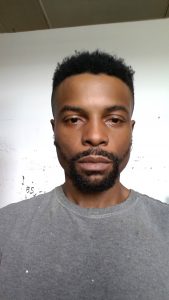 Clintel Steed doesn’t want to be a “numb painter.”
Clintel Steed doesn’t want to be a “numb painter.”
“I want to be a conscious painter and I want to make paintings that maybe can say something to my community and make people want to stop and look at something and pay attention,” he said.
Steed, who is lecturing at 7 p.m. Friday in the Hultquist Center, after a 10-year absence from teaching at the School of Art, said it’s important to be exposed to his surrounding environment and take inspiration from everything, even if some things don’t ultimately make it onto the canvas.
Although some of his best work can come from just walking down the street or reading a newspaper, Steed said he pays attention to things going on around the world, from smog in Beijing, 9/11 and even the Islamic State.
“It’s just certain things that stick with you … it’s always in your DNA,” Steed said. “[They] should be changing all of us, not just me, not just an artist, but everybody should pay attention to that. It should make you love your neighbor more, it should do all these things. For me, I don’t want to take anything for granted.”
However, Steed said, being a top artist is not just about taking every inspiration and running with it; he takes lessons from an unlikely profession.
“Samurais can kill you, but that’s not what a samurai is. They’re very disciplined people and I think being a painter you have to be almost the same way,” Steed said. “Some people just think painting is a very emotional thing, or something you do when you get the itch, but that’s not what it is. It’s a daily practice, you have to be disciplined. There’s a lot of thought behind the craft and that’s what it’s about.”
Steed said he also wants people looking at his artwork to be conscious and come to their own conclusions. He said when he looks at Vincent van Gogh’s paintings, he prefers not to read about the artist, but to just look at the pieces and understand them for himself.
“We always are looking for answers, but we’re never letting the answer come from the experience. I want to go through the experiences instead of being told what the experience is,” Steed said. “[We ask], ‘What’s this about, what does it mean? Tell me what it means, why’d you do this?’ Hey, just look at it. Spend time looking at it and what it is telling you. What are you feeling? What did you get from it?”





